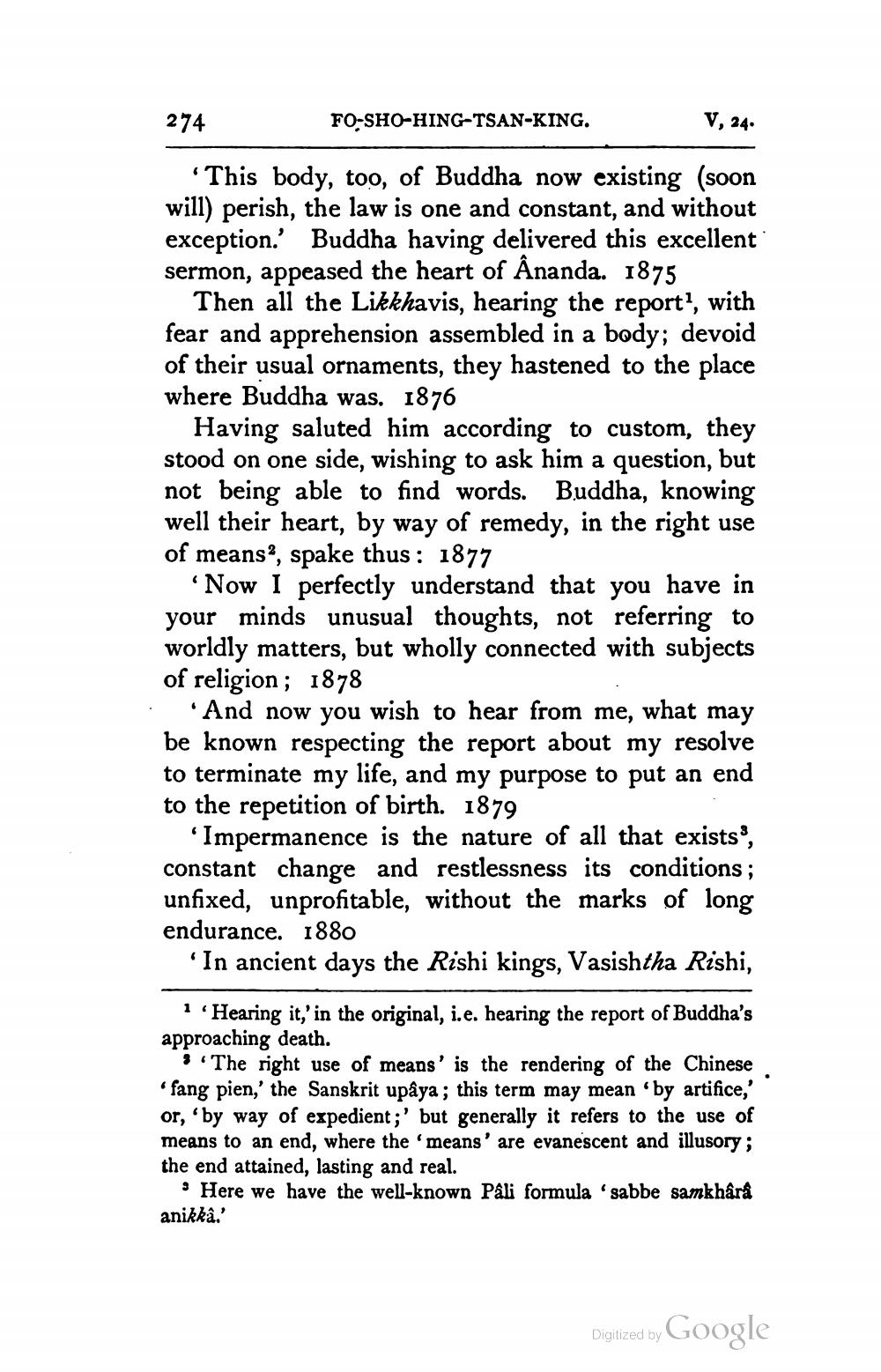________________
274
FO-SHO-HING-TSAN-KING.
V, 24.
*This body, too, of Buddha now existing (soon will) perish, the law is one and constant, and without exception. Buddha having delivered this excellent sermon, appeased the heart of Ânanda. 1875
Then all the Likkhavis, hearing the report?, with fear and apprehension assembled in a body; devoid of their usual ornaments, they hastened to the place where Buddha was. 1876
Having saluted him according to custom, they stood on one side, wishing to ask him a question, but not being able to find words. Buddha, knowing well their heart, by way of remedy, in the right use of meansa, spake thus : 1877
'Now I perfectly understand that you have in your minds unusual thoughts, not referring to worldly matters, but wholly connected with subjects of religion ; 1878
And now you wish to hear from me, what may be known respecting the report about my resolve to terminate my life, and my purpose to put an end to the repetition of birth. 1879
'Impermanence is the nature of all that exists*, constant change and restlessness its conditions ; unfixed, unprofitable, without the marks of long endurance. 1880
In ancient days the Rishi kings, Vasishtha Rishi,
1 Hearing it,' in the original, i.e. hearing the report of Buddha's approaching death.
*The right use of means' is the rendering of the Chinese 'fang pien,' the Sanskrit upâya; this term may mean by artifice,' or, 'by way of expedient;' but generally it refers to the use of means to an end, where the 'means' are evanescent and illusory; the end attained, lasting and real.
Here we have the well-known Páli formula 'sabbe samkhara anikka.'
Digitized by Google




